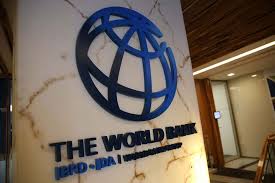Tinubu’s Economic Optimism Masks CBN’s Tough Tactics
Nigeria’s President, Bola Tinubu, exudes confidence in the nation’s economic trajectory, urging citizens to anticipate better days ahead. However, behind this optimism lies a complex interplay between fiscal decisions and the Central Bank of Nigeria’s (CBN) stringent monetary policies.
Tinubu’s assertions of economic improvement during his Easter message are met with skepticism, especially considering the persistently high unemployment and poverty rates plaguing the nation. While Tinubu champions progress, his fiscal policies contribute to the CBN’s aggressive monetary interventions, aimed at stabilizing the economy.
The recent appreciation of the naira is attributed to substantial foreign portfolio investments attracted by Nigeria’s high interest rates. Yet, these rates, reaching around 25 percent, pose challenges to local industries, hindering investment and exacerbating unemployment.
Although foreign portfolio investment influx may momentarily bolster currency value, the long-term benefits are debatable. Sustainable economic growth relies on foreign direct investment (FDI), which is scarce in Nigeria. While FDI stimulates job creation and technological advancements, foreign portfolio investment is volatile and transient.
The CBN’s efforts to strengthen the naira extend to foreign exchange market interventions, involving aggressive selling of dollars to Bureau de Change operators. While this strategy aims to stabilize the currency, it risks triggering capital flight and distorting market dynamics.
Furthermore, the CBN’s approach to curbing inflation includes imposing high interest rates and pressuring individuals to sell dollars, tactics that overlook property rights and market principles.
Tinubu’s spending habits exacerbate economic challenges, as evidenced by ballooning public debt and money supply expansion. His generous subsidies and financial aid to select companies overlook systemic issues like high interest rates and supply constraints, hindering business competitiveness.
With a hefty budget and substantial deficit, Tinubu’s inclination toward lavish spending necessitates stringent monetary policies to curb inflation. However, sustainable economic management requires a balance between fiscal prudence and monetary stability, a path Tinubu must navigate cautiously.












